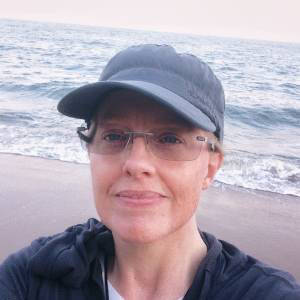Now!
Thank you Majoayee for hosting (but I'm not going to tag it today).
When I saw the challenge I thought of Samuel, asking to go out.
If you had asked me if geese had tongues, I probably would have thought they did, but not big ones like shown in yesterday's blip. I would have thought they had little ones that couldn't extend beyond their mouth.
I figured out why it is taking me so long to talk about improving the resilience of the electric grid and climate change. I don't know transmission and distribution. I can very happily talk about solar home systems or mini-grid systems in developing countries, but I never studied transmission and distribution. Even so, I really think I need to be able to articulate what climate resilience and the grid means.
One fun fact I learned in 2007? is that a lot of important things are located along the coast - like military bases and toxic waste. A co-worker came into my office, excited, because they'd just mapped out what a seven-foot* sea-level rise would mean and in addition to everything else it meant a lot of roads and military bases would be swamped. (*I don't remember the exact number of feet.) After Hurricane Sandy we figured out that a lot of our electrical infrastructure is at risk of flooding.
Droughts and heat make wildfires more intense, more frequent, and longer-lasting. They damage poles.
Thermal power plants require water for cooling. So, for example, coal and nuclear use water for steam that drives turbines. Climate change leads to drought. It increases the temperature of the water and if it is too hot coming into the plant it reduces efficiency. If it is too hot when it is discharged it is out of compliance with regs to protect the ecosystem. Because they need water, these plants tend to be located next to rivers, which can flood. So too much they lose, too little they lose.
Hot air can reduce the capacity of natural gas plants. (!!!! What?)
Hot air temperatures mean we all want our AC and that increases demand and increases the chances of blackouts.
So what to do?
One of my coworkers used to work on "hardening" measures or things that protect equipment from weather damage. This meant sea walls, relocating systems to higher locations, or reinforcing poles.
More interesting to me is energy efficiency, because that reduces peak demand and makes it less likely we'll have outages.
Paying people/businesses to let you turn off their electricity when the demand is too high keeps the grid stable and lets everyone else continue to run their air conditioning.
More wind and solar means more electricity that doesn't require water for cooling.
New tech at thermal power plants that uses less water helps.
So: energy efficiency, demand-side-managment, "hardening," more renewable energy, and tech so thermal power plants need less water to cool themselves.
Oh, today is Lesbian Visibility Day. I'm not sure what you are supposed to do to celebrate it, but I bet if you gave me a cookie that would work.

Comments
Sign in or get an account to comment.


